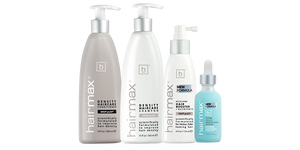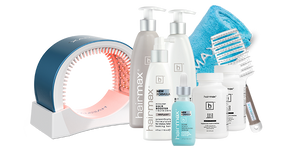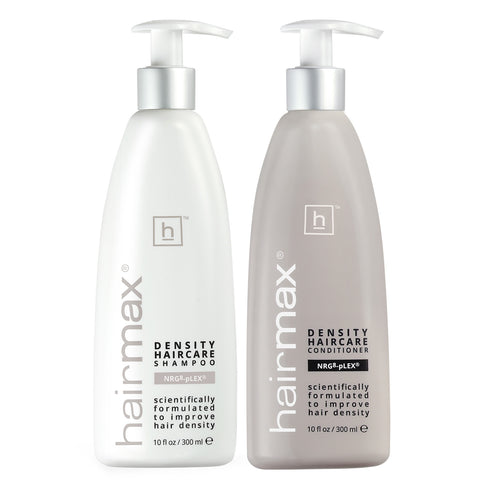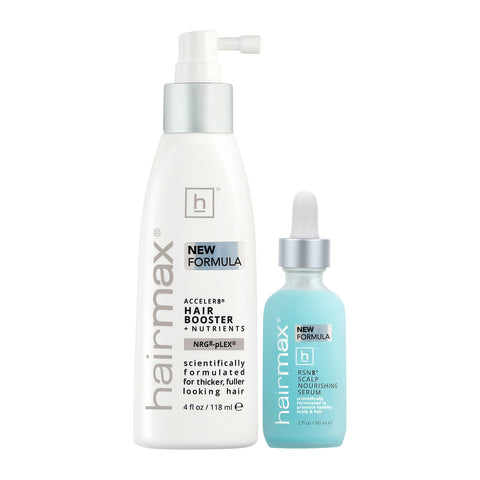Healthy hair is lush, shiny, and strong. While genetics play a big part in the quality of your hair, there are many things that you can do to improve your hair health, as well. Getting into some smart routines and healthy hair habits can help you maintain beautiful locks no matter what kind of hair you were born with. Here are some of our top tips for healthy hair.
Customize Your Shampoo Schedule
Washing your hair doesn't always need to be a daily task. You should base the frequency of your shampoo routine on the amount of oil that you have in your hair. If you have dry, brittle hair, wash it only once every three days. If your hair is oily, consider shampooing it daily. For those who fall somewhere in between, shampooing every other day is usually best.
Keep in mind that your scalp's oil production can change over time. Shampooing frequently can signal the scalp to produce more oil. If you back off of your daily wash, you may find that you reach a comfortable equilibrium where your scalp is no longer overproducing its natural oils. Oil production also tends to slow down with age.
Pick the Right Product for Your Hair Type

Everyone has slightly different hair, which is why there are so many shampoos on the market. Consider your options carefully and choose the shampoo that's best for your needs.
If you have an oily scalp, stay away from moisturizing shampoos and choose those that are balancing, clarifying, or volumizing instead. For a dry scalp, the opposite is true. You should look for shampoos that boost hydration and moisture and avoid those with sulfates. If your hair is thinning, our nourishing shampoo with ingredients like caffeine, pomegranate oil, and saw palmetto will slow hair loss and strengthen your strands.
Use Shampoo and Conditioner Appropriately
Shampoo is designed for your scalp, while conditioner is for your hair. Before using either product, it's important to wet the hair thoroughly. Give it at least a minute to soak under the shower so every strand is drenched. When you're shampooing, you should focus on massaging the product into your scalp. Use a dollop of shampoo that's about the size of a nickel for short hair. Aim for a quarter-size amount of shampoo for medium-length hair and go for a half dollar if you have really long hair.
Massage the shampoo into your scalp for at least 3 minutes before moving on to the hair itself. Gently massage the scalp with smooth steady motions. Don't scratch or scrub vigorously. The shampoo will then gently clean the rest of your hair as you rinse it out. Spend at least a minute rinsing your hair.
Apply conditioner to the ends of your hair. Never use conditioner on your scalp. Start about halfway down your strands. Follow the directions on the bottle as to how long the conditioner should stay in. You typically need to let the conditioner sit for somewhere between 2 and 7 minutes.
Use a Mask
Hair masks are as luxurious and nourishing as face masks. Apply a deep conditioning hair mask once a week to restore your hair's strength, suppleness, and shine. If you use hot tools every day, you may need to use a mask twice a week. Make this part of your self-care routine and consider applying a weekly face mask at the same time for extra pampering.
Maintain a Healthy Diet

Your hair health is directly impacted by your diet. Make sure you're consuming plenty of protein, as this gives your hair its strength. You can get healthy protein from poultry, lean meat, fish, beans, and eggs.
Zinc helps prevent shedding so your hair will stay lush and thick. You can find zinc in a variety of places including oysters, crab, lobster, pork chops, beans, cashews, pumpkin seeds, and chickpeas. Omega-3 fatty acids help nourish your scalp. You can get plentiful omega-3's in flax seeds, yogurt, cold-water fish, and cottage cheese.
Address Stress
Stress can contribute to hair loss, triggering a condition known as telogen effluvium. Telogen effluvium often follows childbirth, surgery, illness, and times of emotional stress. Actively managing your stress can have a direct impact on your hair health. Practices like yoga, meditation, and journaling may help you deal with extreme stress. You can also help minimize stress by getting plenty of sleep and making sure you schedule time for important activities like seeing friends and family.
By incorporating our healthy hair habits and strategies into your regular routines, you can get the lush locks and strong stylable strands that you're looking for.











